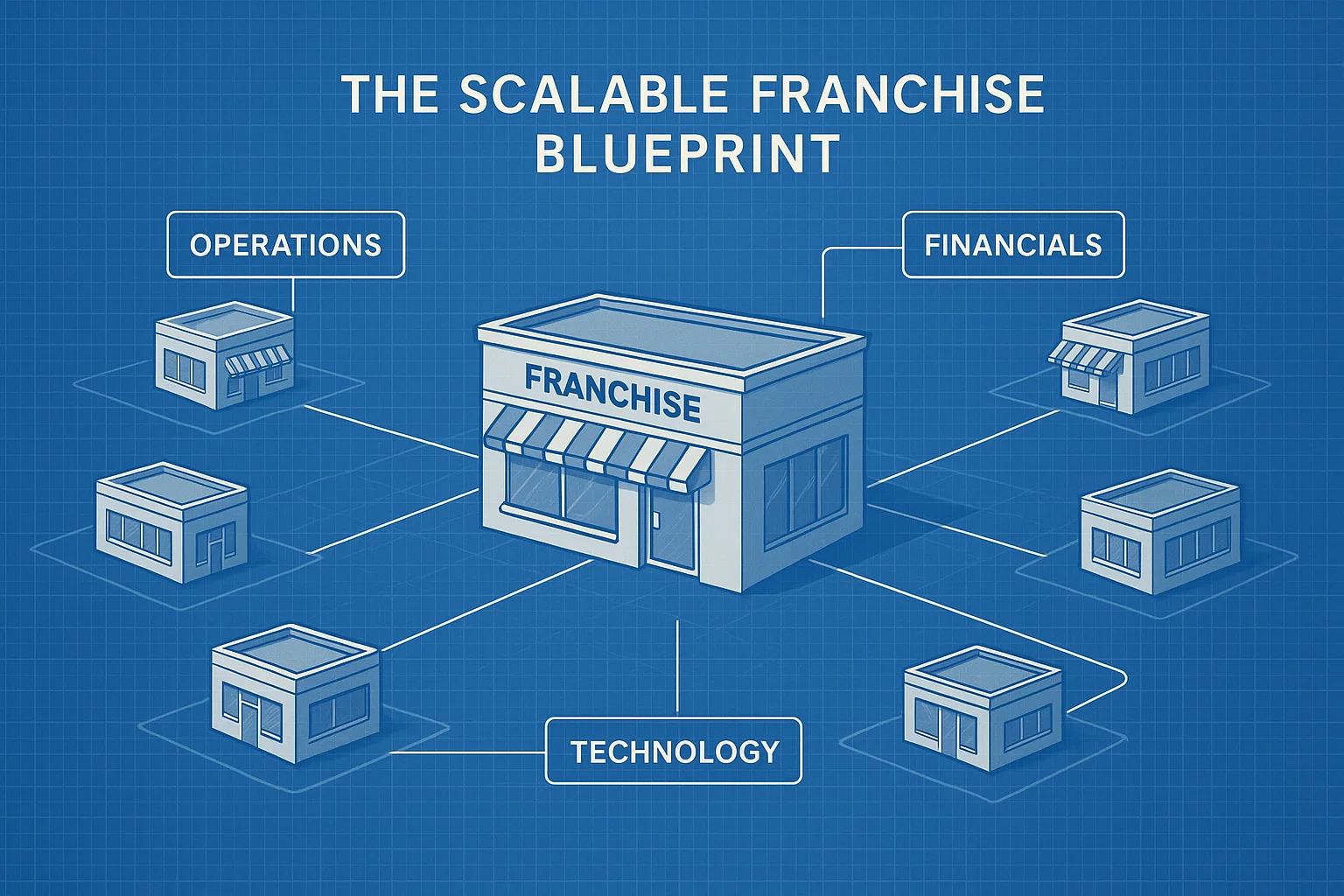Image created with canva
What if I told you that the secret to a massive payday isn’t in selling more units—but in preparing your franchise for the day someone wants to buy all of it? Private equity firms are pouring billions into franchise brands, but they’re not interested in chaos, guesswork, or personality-driven companies. They’re buying infrastructure, profit predictability, and scalable systems. Whether you’re five units in or pushing toward fifty, this article reveals the essential steps every franchisor must take to build undeniable value—and command top dollar—when private equity comes knocking.
HOW TO PREPARE YOUR FRANCHISE FOR A LUCRATIVE PRIVATE EQUITY EXIT: THE ULTIMATE GUIDE TO BUILDING REAL VALUE
By Gary Occhiogrosso – All rights reserved worldwide
Franchise companies that reach a certain level of maturity often find themselves on the radar of private equity firms. These firms seek predictable cash flow, replicable systems, and opportunities to scale. But PE buyers don’t just buy brands—they buy operational discipline, future growth potential, and clean infrastructure. That’s why a forward-thinking franchisor should structure the business with a clear exit strategy in mind, even years in advance.
It starts with leadership. Investors bet on people just as much as they bet on brands. A strong, experienced executive team—one that understands franchising, unit-level economics, and national growth strategy—is a critical piece of the puzzle. If your operation still revolves around the founder’s day-to-day involvement, that’s a red flag. The brand must run on a proven management system that doesn’t depend on any one person.
Equally important is financial transparency. Your books need to be clean, consistent, and professionally managed. Audited financials are best, but at minimum, you’ll need GAAP-compliant statements prepared by a credible accountant. Key metrics such as systemwide sales, royalty income, average unit volumes, and franchisee profitability must be easily tracked and reported quarterly. When it comes to private equity, sloppiness is costly—and confusion kills deals.
Next, ensure operational documentation is rock solid. This includes franchisee onboarding procedures, training manuals, marketing playbooks, and, critically, up-to-date FDDs. Investors will want to see that your franchise offering is legally sound and built to scale. Item 19 financial performance representations are often a focal point—they should be accurate, defendable, and reflect growth across your system.
Franchisee compliance and reporting are also key to valuation. Every franchisee should be contractually obligated—and culturally trained—to submit timely sales reports, P&Ls, and operational performance data. If franchisees are inconsistent or noncompliant, your ability to present systemwide trends becomes compromised. You must operate with the same discipline and expectations as a public company, even if you’re not there yet.
On the real estate side, clarity matters. For company-owned units, make sure lease agreements are transferable and cleanly documented. Ideally, your leases contain favorable terms with renewal options, co-tenancy clauses, and exit provisions that allow for flexibility or assignment to a buyer. For franchisees, keep site selection files, permits, buildout specs, and contractor documentation on record. Private equity firms often request full visibility into franchisee buildout costs and site performance.
Lastly, centralize your KPIs through software. A robust CRM, POS integration across units, and centralized dashboards allow buyers to quickly assess the brand’s health. This kind of infrastructure sends a message: this is a mature, scalable business—not a collection of one-off stores.
A successful PE exit doesn’t happen by chance. It requires deliberate structuring years in advance. Tight operations, professional leadership, clear documentation, and strong unit economics are all part of creating an asset worth buying. Build with the end in mind, and the payoff can be life-changing—not just for the founders, but for franchisees, employees, and the future stewards of the brand.
Sources
- Franchise Times – “Why Private Equity Loves Franchising”
- Harvard Business Review – “What Private Equity Firms Look for in a Business”
- Nation’s Restaurant News – “M&A Activity in Restaurant Franchising”
- International Franchise Association (IFA) – Best practices on franchisor-franchisee compliance
- PitchBook – Data on PE investments in franchised brands
- Technomic – Franchise unit economics benchmarks
- McKinsey & Company – Reports on systematizing operations for business valuation
- Forbes – “Preparing Your Business for Sale” by various business contributors
This article was researched, outlined and edited with the support of A.I.

